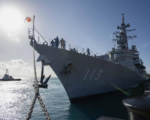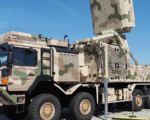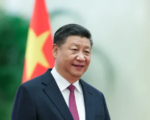China has accused the Philippines of illegally intruding and deliberately colliding with a Chinese vessel in the disputed waters near Escoda Shoal in the South China Sea, further intensifying tensions between the two nations. The Chinese Coast Guard issued a statement on Monday, describing the actions of the Philippine vessel as “unprofessional and dangerous” and warned the Philippines to cease what it called “infringement and provocation.” The incident, captured in videos released by the Chinese Coast Guard, marks the latest in a series of maritime confrontations between China and the Philippines over the strategically important and resource-rich Spratly Islands.
The Escoda Shoal, known in the Philippines as Sabina Shoal and referred to by China as Xianbin Reef, has been a focal point of tension since April, when the Philippine Coast Guard deployed one of its largest vessels, the BRP Teresa Magbanua, to the area. China’s foreign ministry reiterated its demand last Friday for the Philippines to withdraw its vessel, while Philippine Coast Guard spokesperson Jay Tarriela countered on social media, asserting the Philippines’ sovereign rights over the waters, based on the United Nations Convention on the Law of the Sea (UNCLOS) and the 2016 arbitral ruling that rejected China’s expansive claims in the South China Sea.
Tarriela emphasized that the Philippine Coast Guard’s presence at Escoda Shoal is not intended to provoke or escalate tensions but to protect the country’s sovereign rights. The ongoing standoff adds to a broader pattern of confrontations between China and the Philippines in the Spratly Islands, including incidents at the Second Thomas Shoal and Scarborough Shoal, where Philippine vessels have been rammed and sprayed with water cannons by Chinese forces.
China’s actions in the region have drawn international criticism, particularly from the United States, which has a mutual defense treaty with the Philippines. The U.S. recently pledged $500 million in military aid to the Philippines, and the two countries have deepened their military cooperation, with Japan also playing a growing role in the region. In response, China’s defense ministry warned that such defense partnerships should not target any third party or disrupt regional peace, accusing the Philippines of “inviting wolves into the house” by aligning closely with the U.S. and Japan.
The situation remains volatile, with both sides continuing to assert their claims over the disputed territories, raising concerns about the potential for further escalation in the South China Sea.


















